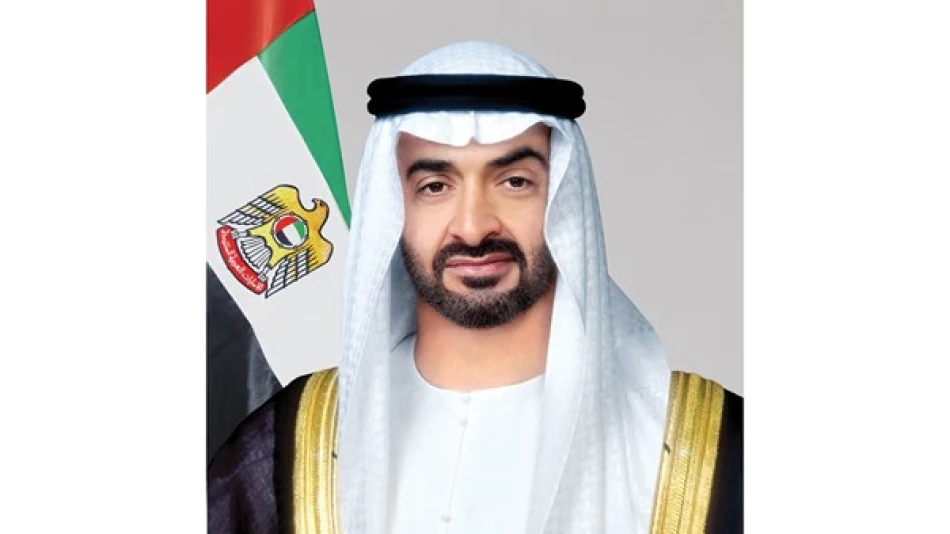
UAE President Arrives at Presidential Palace, Welcomed by Turkish Leader
UAE President Sheikh Mohamed bin Zayed Arrives in Turkey for High-Stakes State Visit
UAE President Sheikh Mohamed bin Zayed Al Nahyan has arrived in Ankara for a state visit to Turkey, marking another milestone in the rapidly warming relationship between two regional powers that were once strategic rivals. The visit, featuring full ceremonial honors at the Turkish presidential palace, signals deepening economic and political ties that could reshape Middle Eastern geopolitics.
Diplomatic Pageantry Masks Strategic Realignment
Turkish President Recep Tayyip Erdogan personally welcomed Sheikh Mohamed at the presidential palace, where the UAE leader received full state honors including a cavalry escort, honor guard, and the playing of both national anthems. The elaborate ceremony underscores how far UAE-Turkey relations have traveled from their 2017 nadir, when the countries found themselves on opposite sides of regional conflicts.
The formal reception, attended by senior Turkish ministers and officials, reflects Turkey's recognition of the UAE's growing influence as a regional economic powerhouse and its desire to attract Emirati investment during challenging economic times.
From Regional Rivals to Strategic Partners
The Transformation Timeline
This state visit represents the culmination of a remarkable diplomatic turnaround that began in earnest in 2021. The UAE and Turkey previously clashed over their support for opposing sides in Libya's civil war, differing approaches to the Muslim Brotherhood, and competing visions for regional influence.
The reconciliation accelerated after Turkey's 2021 diplomatic reset, which saw Ankara mend ties with several regional rivals including Saudi Arabia, Egypt, and Israel. For the UAE, engaging with Turkey offers opportunities to diversify partnerships and reduce regional tensions that could threaten its economic ambitions.
Economic Imperatives Drive Rapprochement
Turkey's economic vulnerabilities have created strong incentives for closer UAE ties. With inflation pressures and currency volatility challenging Turkish markets, Emirati investment represents a crucial lifeline. The UAE has already committed billions in direct investment and currency swaps to support Turkey's economy.
For the UAE, Turkey offers access to European markets, a skilled workforce, and strategic geographic positioning between Europe, Asia, and the Middle East. This aligns with the UAE's broader strategy of positioning itself as a global business hub while diversifying beyond oil dependence.
Regional Implications and Future Prospects
The strengthening UAE-Turkey partnership reflects broader shifts in Middle Eastern geopolitics, where traditional alliances are giving way to more pragmatic, economically-driven relationships. This mirrors similar realignments seen in the Abraham Accords between Israel and Gulf states, suggesting a new era of regional diplomacy prioritizing economic interests over ideological differences.
The visit also sends signals to other regional players, particularly Iran and Qatar, about the changing balance of power and alliance structures in the Middle East. As both the UAE and Turkey seek to expand their influence while managing relationships with global powers like the US, China, and Russia, their partnership could become a stabilizing force in an increasingly complex regional landscape.
Success in this relationship will likely be measured not in ceremonial visits but in concrete economic outcomes, joint investments, and the ability to navigate future regional crises without reverting to past antagonisms.
Most Viewed News

 Layla Al Mansoori
Layla Al Mansoori






